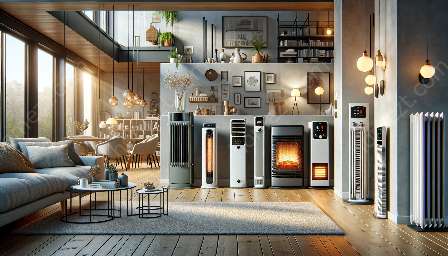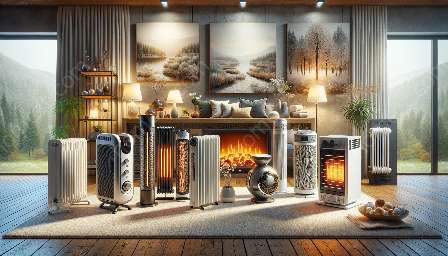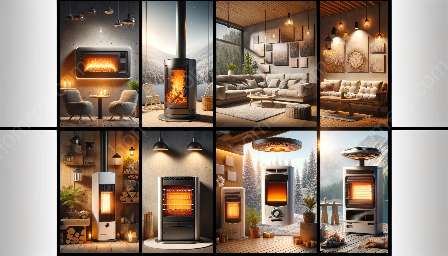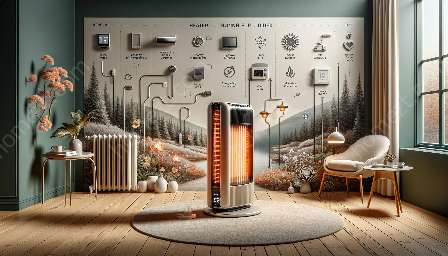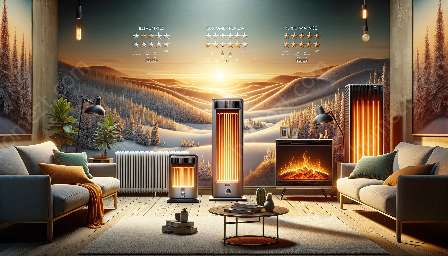As energy efficiency becomes increasingly important, homeowners are seeking ways to reduce their carbon footprint and lower energy bills. One area of focus is home heating, where the use of energy-efficient heaters is gaining popularity. In this comprehensive guide, we will explore various types of heaters suitable for energy-efficient homes, discuss their benefits, and provide practical tips for maximizing their efficiency.
Understanding Energy-Efficient Heating
Energy-efficient heating involves using systems and devices that maximize heat output while minimizing energy consumption. This not only reduces the environmental impact but also helps homeowners save on utility bills.
There are several key factors to consider when choosing heaters for energy-efficient homes, including the type of fuel or energy source, the heating capacity, and the control mechanisms. Let's delve into the details of different types of energy-efficient heaters and their features.
Types of Energy-Efficient Heaters
1. Electric Radiant Heaters
Electric radiant heaters use infrared technology to warm objects and people directly, rather than heating the surrounding air. This targeted heating approach is energy-efficient and helps maintain a comfortable living environment without wasting energy on heating unused spaces.
2. Heat Pumps
Heat pumps are highly energy-efficient heating systems that transfer heat from the outdoor air, the ground, or a water source into the home. They can also be used for cooling in the summer, making them a versatile option for year-round comfort.
3. Pellet Stoves
Pellet stoves burn compressed wood or biomass pellets, offering a renewable and efficient heating option. They are equipped with automated features for precise temperature control, ensuring optimal energy usage.
4. Gas Condensing Boilers
Gas condensing boilers are designed to extract maximum heat from the fuel, resulting in higher energy efficiency compared to traditional boilers. They are ideal for homeowners who prefer gas heating and want to minimize energy waste.
Benefits of Energy-Efficient Heaters
Investing in energy-efficient heaters for your home offers numerous benefits beyond energy savings. These include:
- Lower Operating Costs - Energy-efficient heaters consume less energy, leading to significant cost savings over time.
- Reduced Environmental Impact - By minimizing energy consumption, energy-efficient heaters help reduce greenhouse gas emissions and contribute to a healthier planet.
- Improved Comfort - Energy-efficient heating systems are designed to provide consistent and comfortable warmth, enhancing the overall living experience.
- Long-Term Durability - Many energy-efficient heaters are built to high-quality standards, resulting in extended lifespans and reduced maintenance needs.
Maximizing Efficiency
To make the most of energy-efficient heaters, homeowners can take various steps to optimize their performance:
- Proper Insulation - Ensure that your home is well-insulated to prevent heat loss and maximize the effectiveness of your energy-efficient heater.
- Regular Maintenance - Schedule regular maintenance for your heater to keep it running at peak efficiency and identify any potential issues early on.
- Smart Thermostat Use - Utilize programmable or smart thermostats to maintain precise temperature control and adjust settings based on your schedule and preferences.
Conclusion
Choosing the right heaters for energy-efficient homes is a crucial step towards reducing energy consumption and creating a sustainable living environment. By understanding the different types of energy-efficient heaters, their benefits, and the strategies to maximize their efficiency, homeowners can make informed decisions that align with their energy-saving goals and contribute to a greener future.






































